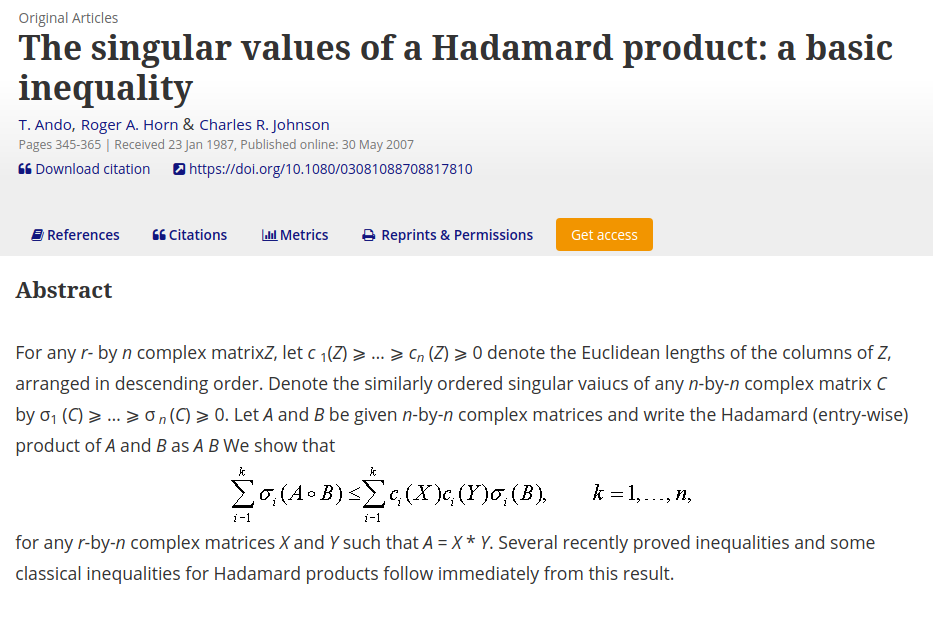For two Matrices $A,B \in \mathbb{R}^{m \times n}$ the Hadamard Product is defined as $(A \circ B)_{i,j} = A_{i,j}B_{i,j}$.
For a proof of convergene I require an upper (and ideally a lower) bound on \begin{align} \sum_{i>k}^{\min(m,n)}{\sigma_i^2(A \circ B)} \end{align} for Matrices with $|A_{i,j}| < 1$ and $|B_{i,j}| < 1$ for all $i,j$ and an arbitrary $1 \leq k < \min(m,n)$
From tests with randomly generated matrices I suspect that the following strong pointwise property, that could be used for a good upper bound, holds:
\begin{align} \sigma_i(A \circ B) < \text{max}(\sigma_i(A),\sigma_i(B)) \end{align}
Generally a decrease in the singular values is expected due to the well known fact that $\lVert A \rVert_F = \sqrt{\sum_i{\sigma_i^2(A)}}$ and by definition $\lVert A \circ B \rVert_F < \min(\lVert A \rVert_F,\lVert B \rVert_F)$, but this does not imply either of the inequalities stated above.
Is there some known upper bound I could use for this problem? Does someone see a proof or counterargument to the strong bound I provided?

